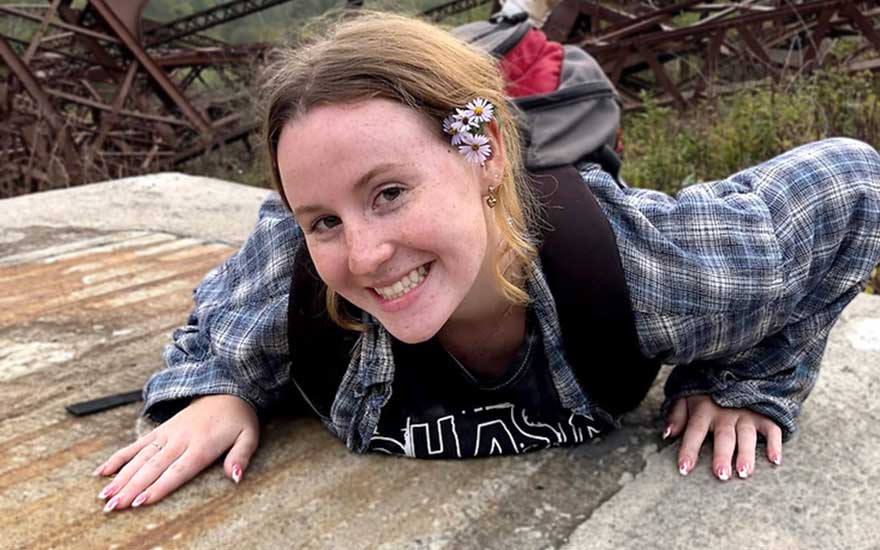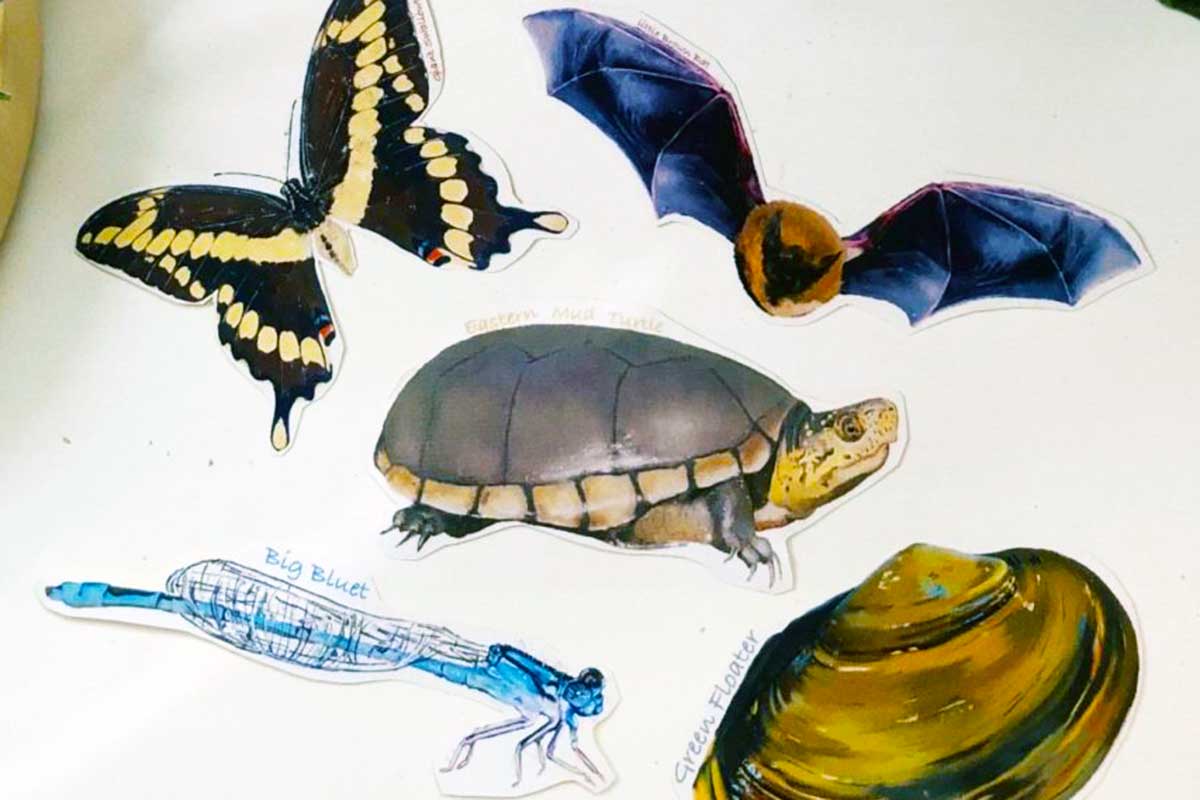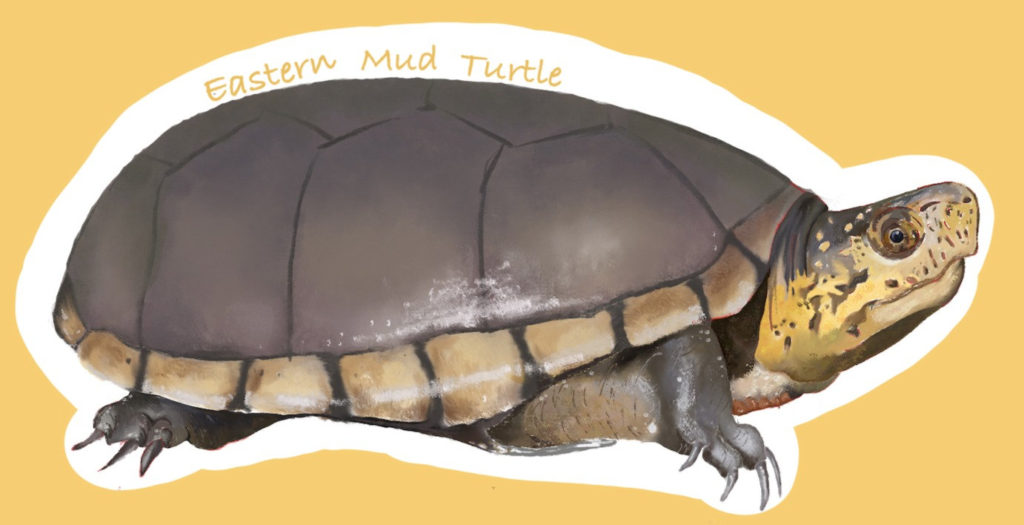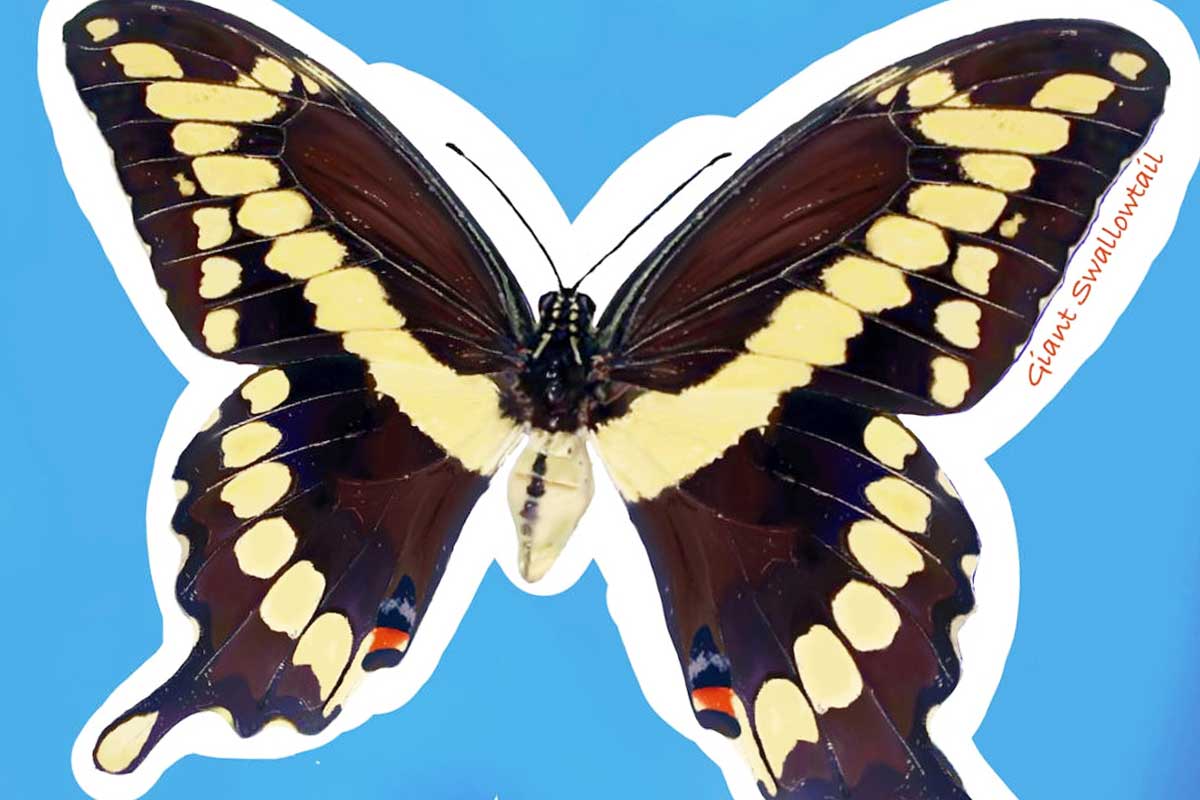Getting Creative in the Field
By Brigette Brown
May 09, 2022

Mary Donnelly — a recent graduate of Drexel’s Biodiversity, Earth and Environmental Science (BEES) department — loves fieldwork. But instead of marshlands, forests, plains or deserts, Mary has been busy working right here in Philadelphia. In previous co-ops, she was part of a biological monitoring effort for crayfish, fish and eel populations for the Academy, as well as an initiative to reintroduce freshwater mussels back into stream systems with the Philadelphia Water Department.

Besides getting out into the field, her interests lie particularly in wildlife conservation. So, for her senior environmental science research project, Mary found a fun, collaborative way to do both while also sharing her findings with the community. The Academy reached out to learn more.
This interview was featured by The Academy of Natural Sciences of Drexel University on April 13, 2022, and is re-published here with their permission.
Tell us about your recent work.
I wanted to understand what species could be at-risk due to climate change in Philadelphia, but also to give the community of Philadelphia access to this information as well. However, I think scientific writing and research can be daunting to many people, or inaccessible. I wanted to find a creative way to engage the community of Philadelphia, and I figured stickers were an easy and fun way to spread this message.

Why stickers?
Today, people are given the opportunity to develop a unique identity. Society is more accepting of people and identities than in previous eras where conformity was valued. This change in dynamic between people and society has been key to the success and popularity behind stickers. Young adults are prouder of their identity; they want to let other people know about the type of person they are, and stickers are an easy way to achieve this goal. Therefore, we see stickers for sports teams, national parks, political movements or sources of accomplishment on items such as laptops and water bottles. At the same time, stickers can spark discussion about important topics. If someone sees a sticker supporting a certain movement, it gets them to think about their personal beliefs.
What was your process?
My goal was to create a series of stickers representing the species in this research. Using Adobe Fresco, I created five stickers and linked them to a website through a QR code which gives more detailed information on this research. The free stickers were placed in several stores around Philadelphia in order to inform people of all ages and backgrounds about this conservation issue. This is an issue I feel like many people would be interested in, or even like the opportunity to learn more about this topic.

How did you determine which species to highlight?
In order to determine future changes in species biodiversity, eight species were chosen from different taxonomic groups. All the chosen species have a rank of S1, S2 or S3. An S1 ranking defines a species as critically imperiled. A rank of S2 means the species is imperiled, and a rank of S3 denotes the species as vulnerable. The eight species that were evaluated are the Short-eared Owl, Eastern Mud Turtle, Eastern Mudminnow, Green Floater, Big Bluet, Giant Swallowtail, Multi-flowered Mud-plantain and the Little Brown Bat. The choices are based in part on classifications from the Pennsylvania Natural Heritage Program.
What was the goal of your work?
My website, which is linked to the stickers, gives a brief rundown of all my work in an easy-to-follow format, and I have a page where interested people can reach me with any questions or concerns. Using stickers allows so many different demographics to have the opportunity to learn and engage in this work, which was part of my overall goal for this project.
I am only one student, but I think my work and my use of stickers can connect members of the Philadelphia community and inspire individuals to engage in this work. By creating a pathway for this information in the community, my research has the capacity to be transformed further by individuals also interested in this issue.